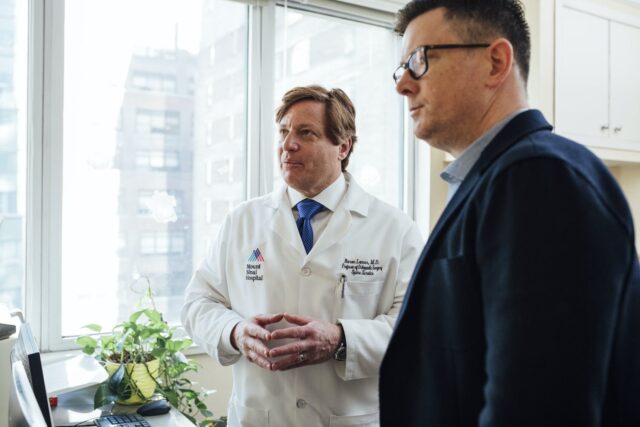
Dealing with addiction is a serious problem, and not acting on time will only prolong the process of rehabilitation and make it much more difficult and challenging. Now, this is only one thing to worry about as there are many other challenges along the way of full recovery, and no one said it is an easy process.
The main one regarding past addicts is about that constant temptation, a slippery road that many often take, regardless of the type of addiction they are dealing with, and as we all know, the temptation is everywhere and sometimes too difficult to avoid. As for solutions and ways to avoid relapsing, there are many steps you can take as a precaution, and having someone by your side is surely one of them, so do not hesitate to ask someone to be there.
Relapse is one of the main reasons why many individuals fail in their attempts to quit their addictions, which is why being strong and willing to try rehabilitation for the second or third time is even more important. It’s normal to relapse, but we should always bear in mind that recovery can be achieved, either by ourselves or/and with support.
Humans are social beings, and having support when we need it the most can be of vast importance. Often, choosing a holistic clinic can give you that much-needed support, and you can view more about the benefits of this approach and find out what makes holistic clinics so successful. But in this guide, we will describe several tips that’ll help you get back on track.
Tip 1: Take it “One Day At A Time”

Addicts tend to think in terms of means rather than ends, which is wrong and will do you no good in the long run and could actually do more harm than good. That’s because addicts often focus on what they need to do today in order to get their next hit tomorrow, instead of focusing on the long-term goal of staying clean and actually living a normal life.
Try taking things slow, as slow as one day at a time, just in order to keep your mind off this thinking distortion. As a recovering addict, you need to break the habit of thinking about a substance or a behavior. If you can’t stop thinking about the drugs, try diagnosing the problem in order to be able to start changing your actions. The power of will can be a wondrous tool that can lead us to some great paths but, if not used properly, can make our life much more challenging and difficult.
Tip 2: Don’t Dwell On Mistakes

Learning from mistakes is one thing, but constantly thinking about all the bad things and decisions is also a path to nowhere.
It’s good to be fully aware of your actions as it is the best way to learn from those mistakes, but leave the past be, take responsibility for those actions, accept yourself in that world and focus on making better choices in the future. The vast majority of addicts tend to dwell on their mistakes, which only makes them feel even more miserable, and feeling that way only means that the chances of relapsing are much higher.
Instead of beating yourself up for slipping up, focus the energy on accepting mistakes as a part of the recovery process, and make sure that you learn from them. The same thing goes with relapsing, as it is entirely normal to feel upset, but don’t get stuck there in those thoughts and become a victim of your own mind.
Tip 3: Acknowledge The Problems

Be honest about what’s causing that relapse in the first place, and by doing this, we’ll be able to put our finger on the real problems that are taking place, which can then help us develop an effective plan for recovery. When we are honest with ourselves about all the problems, we’ll be able to adjust our habits. For example, if we faltered because of an emotional problem, then we should do everything to find an effective solution to solve it so that we can build a more solid foundation for recovery.
Tip 4: Practice Meditation

There’s no better time than the present to start practicing meditation, as this can be of great help with staying centered and focused on what we really need to do, especially when the desire to relapse is strong. When we feel relaxed and calm, we are able to resist temptation and think rationally instead of emotionally.
It’s all about making decisions, which is why making them when we are calm and peaceful can mean so much since we will surely make the better one. By meditating regularly, you can take your mind off the urges that are compelling you to use drugs or perform other addictive behaviors and completely change.
Meditating also helps with focusing on yourself rather than relying on substances or behaviors, or even other people. That will help reinforce the inner strength, so it becomes a part of your character.
Tip 5: Discover New Hobbies

To make a distraction from the desire to relapse, it’s a must to find new things that can interest and occupy your free time. One great hobby is exercising, and by that, we do not mean anything too extreme. By doing this, you’ll feel much healthier and more confident while releasing endorphins that can serve as a natural antidepressant.
The benefits of exercise aren’t just physical, as they also help strengthen the mind as well, so try to take up a new sport or sign up for fitness classes regularly. Start with easier training, and after a while, it will become a great habit that can help a lot with relapsing and addiction at all. Besides exercising there are many different hobbies that can also be helpful, and it is up to us to choose the one that suits us the most because none of them is wrong.
Tip 6: Develop A Support Group

Although you need to learn how to rely on yourself first, it’ll be more beneficial if it is possible to develop a support group that can provide advice and assistance. This way, they’ll be there when you feel tempted to relapse, especially during the rough times, because there is always someone who can provide the necessary support and help during difficult times. Support groups usually develop a strong connection between the members because they are all in the group because they are dealing with the same problem, which is much easier when not doing alone.









